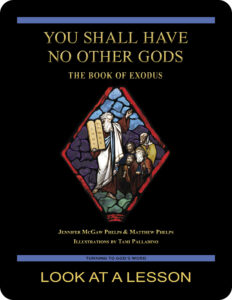test
 In the twenty-second chapter in the Gospel According to Matthew (NABRE), the Pharisees devise for Jesus what they believe to be a no-win scenario. Their aim is to either force Jesus to speak openly against Roman rule, thereby making him a target to the Romans, or to force him to encourage the people to bow to that Roman rule, which would have undermined Jesus’ credibility as a religious leader and possible Messiah.
In the twenty-second chapter in the Gospel According to Matthew (NABRE), the Pharisees devise for Jesus what they believe to be a no-win scenario. Their aim is to either force Jesus to speak openly against Roman rule, thereby making him a target to the Romans, or to force him to encourage the people to bow to that Roman rule, which would have undermined Jesus’ credibility as a religious leader and possible Messiah.
In the Gospel According to Matthew 22:18 (NABRE), Jesus confronts the Pharisees by asking them, “Why are you testing me, you hypocrites?” The word translated here as test, πειράζω (peirazo), has a couple of different meanings. In the positive sense, it describes testing to determine something’s worth or value, for example, the way gold is tested or tried in fire. In a negative sense, it can mean temptation. In both cases, however, the trial or test ends up showing the merit of the thing tested.
How does Jesus’ response allow him to escape from the trap laid by the Pharisees? What does this response show us about Jesus?
related topics: agony; into test; temptation
you also may like our study of the book of Exodus
 You Shall Have No Other Gods: The Book of Exodus, a 28-lesson Catholic Bible study with an imprimatur, provides an in-depth look at how significant events in biblical history that occurred thousands of years ago to descendants of Jacob remain relevant and even critical for present-day Christians to understand. The deliverance of the Hebrews from slavery in Egypt and the giving of Ten Commandments are examined along with the development of Moses’ relationship to God. Click on the book’s cover to view a sample lesson.
You Shall Have No Other Gods: The Book of Exodus, a 28-lesson Catholic Bible study with an imprimatur, provides an in-depth look at how significant events in biblical history that occurred thousands of years ago to descendants of Jacob remain relevant and even critical for present-day Christians to understand. The deliverance of the Hebrews from slavery in Egypt and the giving of Ten Commandments are examined along with the development of Moses’ relationship to God. Click on the book’s cover to view a sample lesson.
 Click on the picture of the statue of Moses with horns (above) to learn more about Lost in Translation. A new entry is archived each Monday. Contact us to receive Lost in Translation by email every week. You may use any of the contact links on our website to ask Matthew a question.
Click on the picture of the statue of Moses with horns (above) to learn more about Lost in Translation. A new entry is archived each Monday. Contact us to receive Lost in Translation by email every week. You may use any of the contact links on our website to ask Matthew a question.
